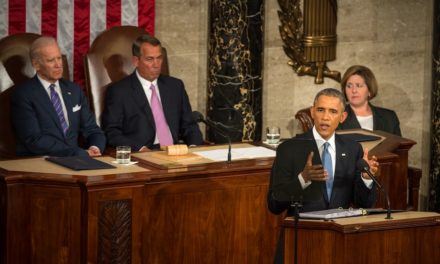
Courtesy of Emory University
Content Warning: This article contains references to gun violence.
Inspired by recent initiatives such as those at Northwell Health’s hospital on the New York borough of Staten Island, which integrates firearm safety discussions into routine medical visits, healthcare providers nationally are increasingly recognizing the imperative to address gun violence as a public health issue.
Advocates argue that treating firearm injury prevention as a public health concern is long overdue. The White House has declared firearm injury an epidemic, while organizations like the Centers for Disease Control and Prevention and National Institutes of Health are allocating resources for prevention research. Moreover, numerous medical societies now acknowledge gun injury as a public health crisis, underscoring the role of healthcare providers in mitigating its consequences. It is essential that we take a bold stance and recognize that healthcare professionals have a moral obligation to address gun violence as not just a public health crisis but also an issue of individual safety.
While discussions about firearm safety in healthcare settings may seem intrusive to some, they are a crucial component of addressing the severity of gun violence in America. In a society where traditional avenues have failed to stem the tide of gun-related injuries and fatalities, some perceive healthcare professionals as stepping outside their traditional bounds by initiating these conversations. Yet, these professionals are merely shouldering the burden of a societal failure to adequately address this pressing issue. As other structures falter, doctors are left to confront the grim realities of gun violence, often at the forefront of providing care to its victims.
The truth is staggering: In 2022 alone, there were 48,222 gun-related deaths in the United States from preventable, intentional and undetermined causes. Instead of blaming doctors for asking about guns, Americans must recognize it is the systemic normalization of firearms that has necessitated this change. In a society where gun ownership is ubiquitous and gun violence pervasive, healthcare professionals are increasingly compelled to address this issue as a matter of public health.
The impact of Americans’ obsession with guns is not felt equally across all demographics. While 36% of white Americans report owning a gun, compared to 24% of Black and 15% of American Hispanics, it is communities of color that bear the brunt of gun violence. This disparity extends beyond mere statistics; it permeates the daily lives of individuals in these communities. It means the loss of loved ones tears apart families, children grow up in environments where gunshots are a familiar sound and communities grapple with the trauma and loss that result from pervasive violence.
Enter the National Rifle Association: The self-appointed guardian of gun rights and purveyor of dangerous rhetoric. This organization, with its deep pockets filled by an astounding $18,239,552 raised and $14,498,584 spent, according to political action committee summary data from 2021-2022, alongside its relentless lobbying efforts, has successfully weaponized the Second Amendment to serve its own agenda. It prioritizes the profits of gun manufacturers over the lives of innocent Americans, stifling any meaningful conversation about sensible gun regulations with its stranglehold on American politics.
The fact that routine medical visits now include questions about firearms speaks volumes about the pervasive impact of gun violence on public health. Doctors are not merely diagnosing and treating diseases; they are advocating for the well-being of their patients and communities in the face of a pressing gun violence crisis. It’s about ensuring that individuals are informed and empowered to make responsible choices about their health and safety. The routine inclusion of questions about firearms in medical visits is not an overreach; it’s a recognition of the failure of broader societal structures, such as legislative inaction on gun control and insufficient community resources for violence prevention programs, to adequately address the root causes of this epidemic.
We must reject the fatalistic notion that gun violence is an unavoidable facet of American life. With 31.3 million college-aged individuals in the United States, we possess the potential to enact change. Let us leverage our voices to champion public health initiatives focused on medicine, such as integrating firearm safety discussions into routine medical visits and advocating for comprehensive research into prevention strategies by our doctors.
As members of the Emory University community, we have the power to make a difference. With Emory Healthcare, the most comprehensive academic health system in Georgia, and its 11 hospitals, combined with our university’s emphasis on healthcare education and research, we are uniquely positioned to drive change and address the pressing issue of gun violence in our state and beyond. Considering the significant number of future doctors and health professionals attending Emory, we are in a position to not only advocate for public health initiatives but also actively engage in research, policy development and community outreach aimed at preventing gun violence from the ground up. This includes urging Congress to reinstate the Assault Weapons Ban, advocating for legislation to prioritize community safety by banning assault weapons, and supporting comprehensive firearms safety education initiatives. Additionally, joining upcoming volunteer events and campus organizations like Physicians for Human Rights and Health Students Taking Action Together, Inc. can provide opportunities for involvement in impactful advocacy efforts and community outreach .
Demand change by urging Congress to reinstate the Assault Weapons Ban, advocating for legislation to prioritize community safety by banning assault weapons. Advocate for safety by encouraging your U.S. representative to co-sponsor bills aimed at stopping gun trafficking, preventing firearms from falling into the wrong hands. Pledge your support to disarm hate and promote comprehensive firearms safety education in the United States. Get involved by joining upcoming volunteer events in your community, such as organizing rallies, hosting informational sessions or participating in outreach efforts led by campus organizations like Physicians for Human Rights and Health Students Taking Action Together, Inc. Download the Everytown for Gun Safety app to access resources, stay informed and take action on the go.
This is not just about passing laws or implementing regulations. It is about challenging the underlying structures of power and privilege that perpetuate gun violence culture in the United States. It is about dismantling the culture of fear and division that has allowed the gun lobby to dictate our nation’s policies.
The time for change is now. We owe it to ourselves and to future generations to stand up and demand a world free from the threat of gun violence.
If you or someone you know is struggling in the aftermath of gun violence, you can reach Emory’s Counseling and Psychological Services at (404) 727-7450 or https://counseling.emory.edu/ or the Substance Abuse and Mental Health Services Administration Disaster Distress hotline 24/7 at +1 (800) 985-5990.
Eliana Liporace (27C) is from Englewood Cliffs, N.J.



